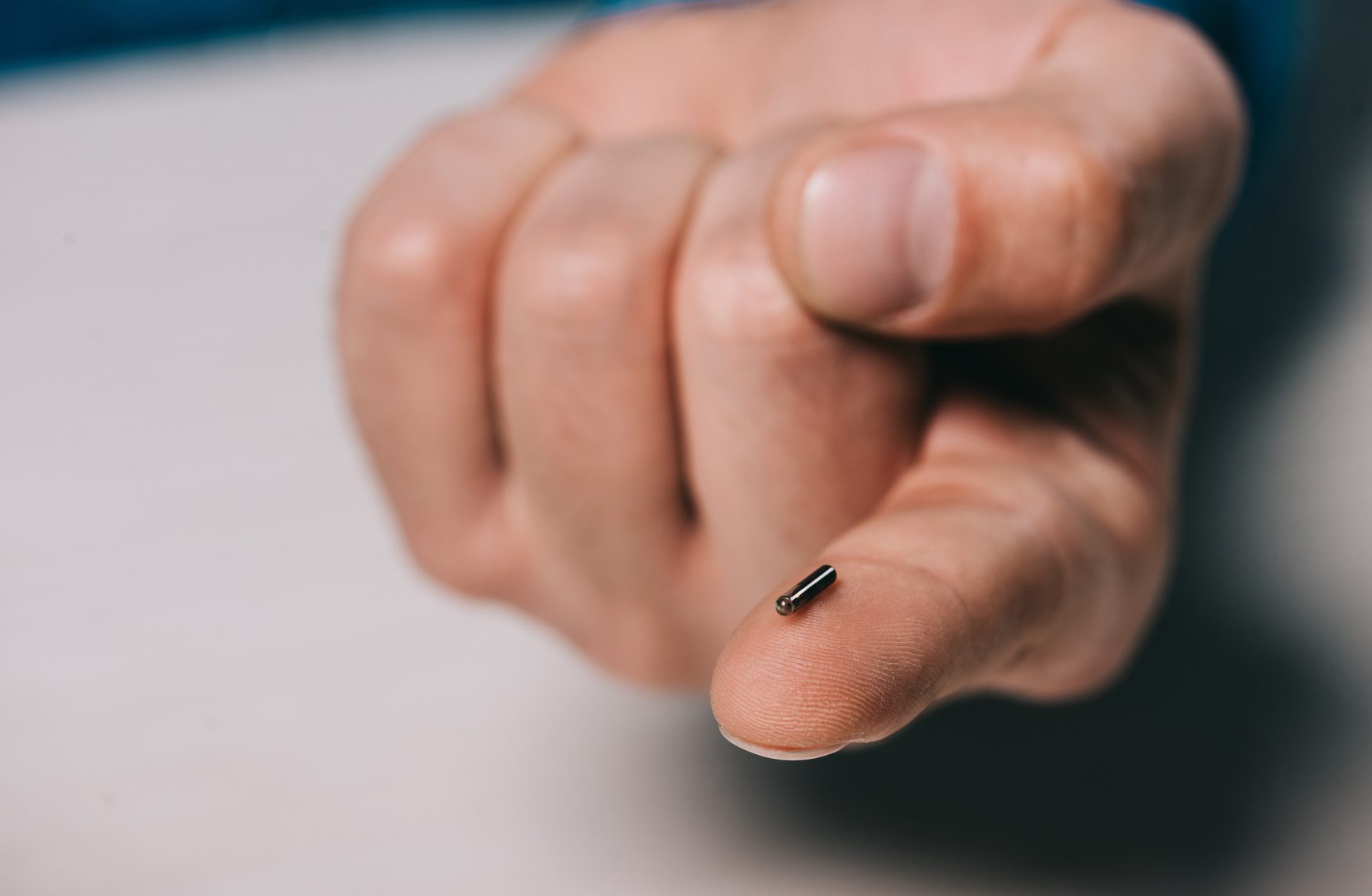
Employees Get Microchip Implants
Some Employees Get Microchip Implants Under Company Pressure. This Seemingly Benign Technology Hides a Sinister Scheme to Track American Citizens for New World Order.
Cincinnati video surveillance company now requires employees get microchip implants to enter their secure data center.
The VeriChip is a glass encapsulated RFID tag that is injected into the flesh of the arm to uniquely number and identify individuals.
The tag can be read through a person’s clothing, silently and invisibly, by radio waves from a few inches away.
The highly controversial device is being marketed as a way to access secure areas, link to medical records, and serve as a payment instrument when associated with a credit card.
A local doctor has already implanted two of CityWatcher’s employees with the VeriChip devices. “I will eventually receive an implant too,” he added.
“It worries us that a government contractor that specializes in surveillance projects would be the first to publicly incorporate this technology in the workplace”, said one microchip investigator.
CityWatcher provides video surveillance, monitoring and video storage for government and businesses, with cameras set up on public streets throughout Cincinatti.
The company hopes the VeriChip will beef up its proximity card security system that controls access to the room where the video footage is stored, said Gary Retherford of Six Sigma Security, Inc., the company that provided the VeriChip technology.
“The prox card is a system that can be compromised,” said Retherford, referring to the card’s well-known vulnerability to hackers.
Employees Get Microchip Implants
Employees Get Microchip Implants for no Good Reason
Ironically, implantable tags may not provide CityWatcher with that additional safety, after all.
Security researcher Jonathan Westhues demonstrated how the VeriChip can be skimmed and cloned by a hacker, who could theoretically duplicate an individual’s VeriChip implant to access a secure area.
Westhues, author of a chapter titled “Hacking the Prox Card” for the recent “RFID: Applications, Security, and Privacy”, said the VeriChip “is not good for anything” and has absolutely no security.
“No one I spoke with at Six Sigma Security or at CityWatcher knew that the VeriChip had been hacked,” McIntyre observed.
“They were also surprised to hear of VeriChip’s downsides as a medical device. It was clear they weren’t aware of some of the controversy surrounding the implant.”
Why Must Employees Get Microchip Implants?
Although CityWatcher reportedly does not require its employees to take an implant to keep their jobs, Katherine Albrecht, outspoken critic of the VeriChip, says the chipping sets an unsettling precedent.
“It’s wrong to link a person’s paycheck with getting an implant,” she said.
“Once people begin ‘voluntarily’ getting chipped to perform their job duties, it won’t be long before pressure gets applied to those who refuse,” she added.
Albrecht and McIntyre, who are Christians, also have religious concerns about RFID chip implants.
In their latest book, the pair explain how plans by global corporations and government entities to broadly deploy RFID could usher in a world that bears a striking resemblance to the one predicted in Revelation.
According to Revelation, at some future point people will not be able to buy or sell unless they are numbered and bear a mark on their hand or forehead.

 My First Amazing Ayahuasca Experience
My First Amazing Ayahuasca Experience  Pine Needle Tea
Pine Needle Tea  The REAL Controllers of Humanity: The Papal Bloodlines
The REAL Controllers of Humanity: The Papal Bloodlines  Is it Global Warming or Cooling?
Is it Global Warming or Cooling?  Gun Rights and Obama Examined
Gun Rights and Obama Examined